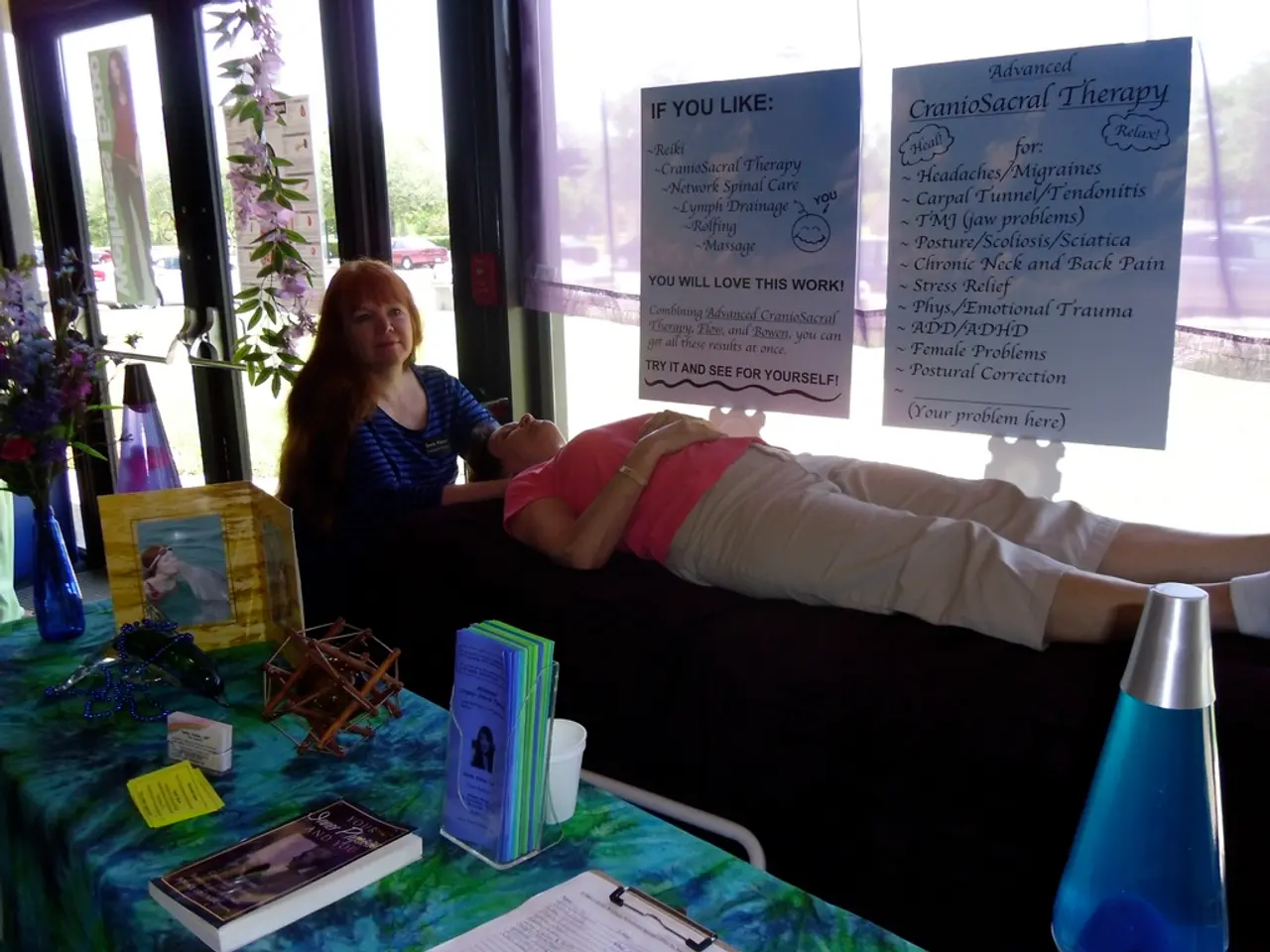Recovery guidance after double mastectomy: Insights and anticipated experiences
In the face of a double mastectomy, understanding the procedure and its aftermath is essential for a smooth recovery. Doctors play a crucial role in preparing patients, explaining the surgery, taking a medical history, performing a physical examination, conducting blood tests, and answering any questions.
Following the operation, rest is of utmost importance. Recovery time can vary significantly, ranging from 2 to 8 weeks. Friends and family can offer invaluable support by helping with housework, meal preparation, and childcare during this period.
Pain medication may be necessary to manage any pain or discomfort after surgery. Arm exercises are also recommended to prevent stiffness and maintain flexibility during recovery.
However, the road to recovery is not without potential side effects and risks. These may include fatigue, pain and stiffness in the arms, phantom breast sensations, lymphedema, scar tissue, bleeding, seroma, depression, and complications related to breast reconstruction surgery.
Emotional support is equally important during this challenging time. Support organizations can provide emotional support before and after the procedure, while having a loved one present for support during bandage removal can help alleviate any distress.
Arranging a ride home is essential because driving after being under anesthesia is dangerous. At-home recovery usually takes a few weeks, but it may take longer for those who have had breast reconstruction.
Before leaving the hospital, individuals will receive instructions on showering, removing bandages, caring for drains, using medication, performing arm exercises, experiencing possible side effects and complications, and booking a follow-up appointment.
Packing a hospital bag with loose-fitting clothes is important for post-surgery comfort. Common tips for emotional recovery focus on acknowledging your feelings, seeking support, and maintaining open communication with health professionals.
Emotional responses to a double mastectomy can include sadness, grief, loss of sexual identity, fear, concerns about body image, and fear of the cancer returning. Support groups, one-on-one counseling, and self-care practices can help manage these feelings.
Breast reconstruction can add additional time and complexity to recovery. Those who are not having reconstruction surgery may wish to research prosthetic options. Nipple tissue can be spared or reconstructed as part of a mastectomy.
The American Cancer Society offers support programs throughout the United States. Preparing the home by cooking and freezing meals in advance and asking friends or family for help with cooking and cleaning can also ease the recovery process.
Individuals may need to avoid eating or drinking for a while before the surgery and stop taking aspirin or other blood-thinning medications.
In conclusion, emotional recovery is a process that requires patience, support, and professional guidance. Remember that you are not alone, and resources are available to help you navigate this challenging journey.
- During the recovery period after breast cosmetic surgery (such as a double mastectomy), therapy may be necessary to manage mental health conditions, including depression, fear, and concerns about body image.
- In addition to physical recovery, it's essential to focus on health and wellness by eating properly, getting rest, and maintaining a routine of arm exercises to prevent stiffness.
- Medical-conditions like lymphedema, scar tissue, bleeding, seroma, and complications related to breast reconstruction surgery can arise post-operation.
- Men's health and women's health organizations offer emotional support before and after breast cancer procedures, providing resources for coping with grief, sadness, loss of sexual identity, and fear of the cancer returning.
- Before undergoing breast cosmetic surgery, individuals should follow pre-surgery guidelines like avoiding eating or drinking for a while, stopping blood-thinning medications, and packing a hospital bag with loose-fitting clothes for post-surgery comfort.




